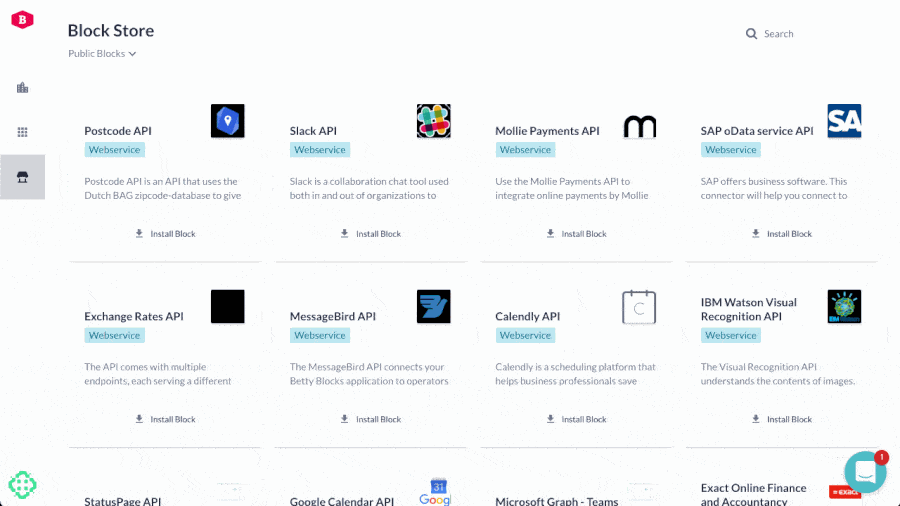Betty Blocks for Developers
Low-code platforms empower professional developers with the speed and agility to develop new applications at a rapid pace. Use integrated tools, pre-built templates, and a visual coding environment to create stunning applications, portals, tools, and interfaces.









